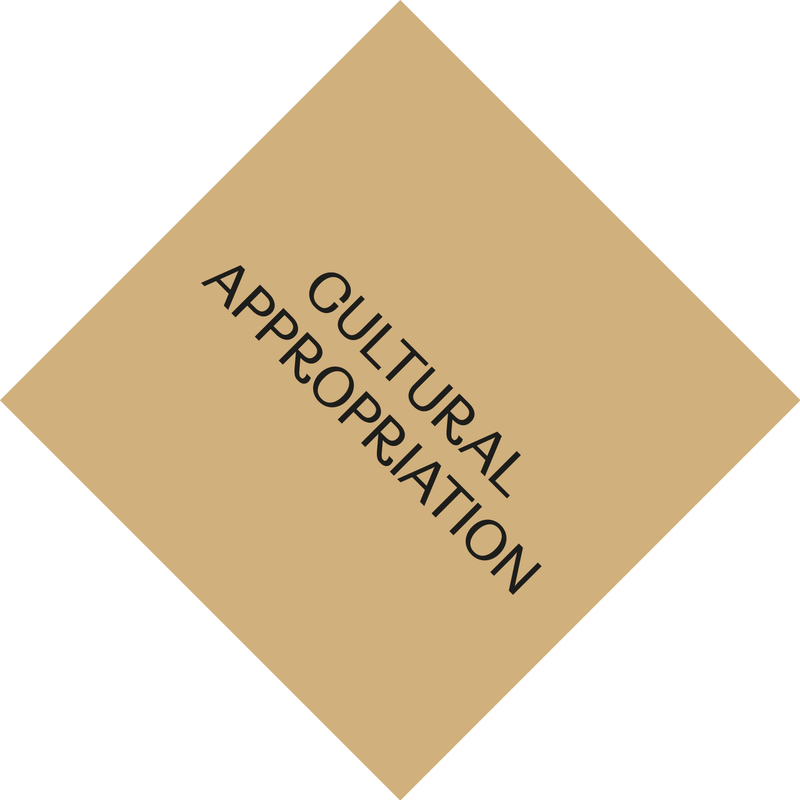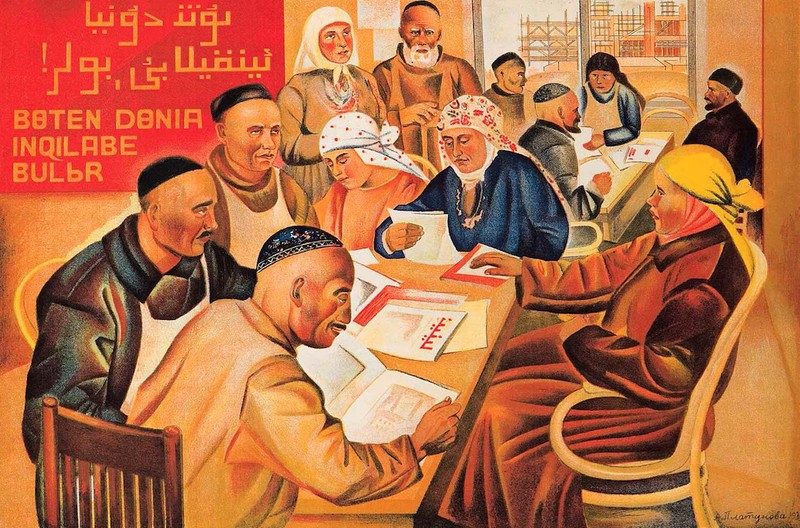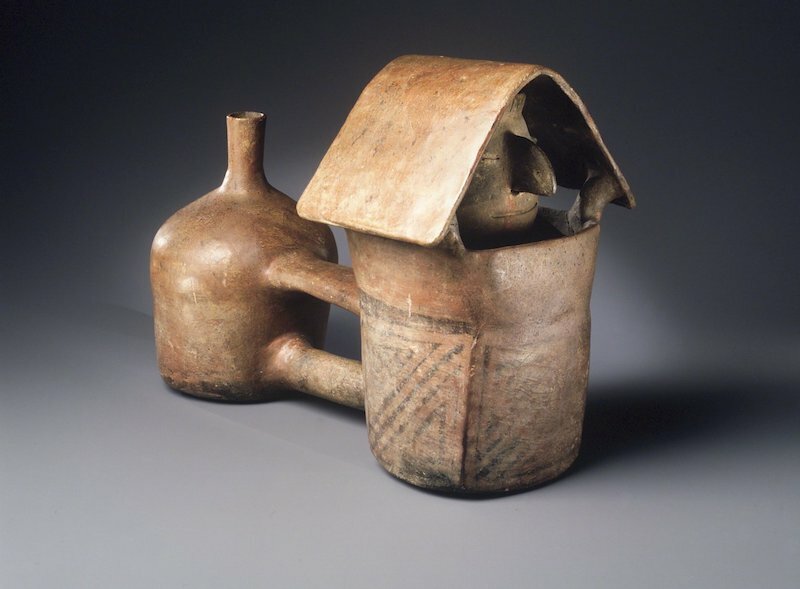
Nowadays, “Orientalism,” and “orientalization” as its derivative, are considered among some of the most important concepts in postcolonial research. Etymologically, the term “Orientalism” refers to the Anglo-French word Orient, which originates from the Latin Oriens used for the Asian provinces of the Roman Empire, as well as Greece, Egypt, Cyrenaica (the northeastern part of modern Libya), and Thrace and Mysia at the Balkans. The famous Russian orientalist Boris Turayev (1868–1920) defined “Oriens” in the Brockhaus and Efron Encyclopedic Dictionary writing the following, “This concept became even more widely-used after the division of the empire, and later—of the church; the border between these empires and both the churches coincided with the border between Hellenism and Romanism.” Thus, for the Western Roman Empire the Orient included what we now define as the Middle East and was partially comparable with what was seen as the Orient already during the formation of the European empires of the New Age, that is, the region of Western Asia and North Africa. In the new Western European imagination, Greece and the Balkans were no longer considered the Orient, but, as the American anthropologist Michael Herzfeld noted, neither did they become the West in the full sense of the word.
At the end of the 18th century, as Edward Said wrote in Orientalism, the so-called “Romantic Orientalism” emerged. The Orient inspired, for example, artists and composers—Said mentioned Mozart’s opera The Abduction from the Seraglio. Among European philosophers and historians, it also became fashionable to study oriental languages and the translations of important cultural texts from Arabic, Persian, and Sanskrit were published, enjoying immediate demand. Namely, the first “scientific” (that is based on Arabic sources and interpretations) translation of the Quran into English by George Sale (1697–1736) quickly gained popularity. These texts gradually formed the basis for comparative studies in philosophy, general history, and anthropology, and were also used for the classification of cultures and civilizations.
At the same time, at the turn of the 18th–19th centuries, the process of European colonization of the countries of the Middle East began to strengthen so-called “academic Orientalism.” The conquests were accompanied by great scientific historical discoveries. “The Napoleonic expedition to Egypt had not only a military, but also a scientific nature, one of its outcomes was the discovery of the Rosetta stone, which made it possible to approach the decoding of hieroglyphs,” Boris Turayev wrote in the Brockhaus and Efron Encyclopedic Dictionary. Gradually, along with the terms “Orient” and “oriental,” the word “Orientalism” came into use, denoting a particular specialization in the Orient as a scientific subject for those in the fields of both the arts and sciences. The former created Orient-inspired artistic, musical, and theatrical pieces, while the latter produced a body of knowledge and contributed to the formation of Orientalism as a discipline. If in the 18th century “Orient” was seen as a romantic movement, motive, or additional case for philosophical theorizing or comparative analysis, in the 19th century the study of the East already required a more detailed degree of immersion. Orientalism became a professional specialization for experts, intellectuals, and scholars, often directly associated with colonial institutions located in the region.
As Edward Said wrote, the Europeans saw the Orient as a field for a wide range of career investments, “The scientist, the scholar, the missionary, the trader, or the soldier was in, or thought about, the Orient because he could be there, or could think about it, with very little resistance on the Orient’s part.” As a result of such investments (including scientific and intellectual ones) related to the imperial legacy and the legacy of colonialism, according to Said, “under the general heading of knowledge of the Orient […] there emerged a complex Orient suitable for study.”
After the publication of Said’s monograph, it was exactly the dominant Eurocentric approach to the Orient, as well as its instrumentalization and objectification in the process of producing knowledge about it, that the word “Orientalism” began to define. Among other things, the approach was necessary in order to continue domination over the Orient, which, as a result of such unequal interaction with the West, according to Said, was losing its own subjectivity and self-representation and becoming subordinate to the European discourse about itself. Through a literary analysis of the famous texts that made up the canon of British and French Orientalism, Said revealed precisely this aspect of the construction or “orientalization” of the Orient. Its passivity and subordination in the process of the formation of its image about itself were expressed in the well-known phrase, “The Orient was orientalized.”
The central idea of Said’s monograph is expressed in the thesis that the colonial and neo-colonial domination of the West over the Orient is accompanied by cultural hegemony, which also includes discursive practices in the academic sphere. “Taking the late 18th century as a very roughly defined starting point, Orientalism can be discussed and analyzed as the corporate institution for dealing with the Orient—dealing with it by making statements about it, authorizing views of it, describing it, by teaching it, settling it, ruling over it: in short, Orientalism as a Western style for dominating, restructuring, and having authority over the Orient,” wrote Said. For the scholar himself, the Orient was concentrated or localized in the Middle East. So, it was mainly Arab, in some places the Persian and Turkish Orient, which, according to him, was both the oldest colony in Europe and the main locus of Europe’s interaction with the “Other” world. Europe acquired its subjectivity of the normative Western world thanks to the existence of the Orient.
As Said put it in Orientalism, two superpowers—Britain and France—were dominating the Orient since the late 18th century as the main centers of the Orientalism formation. After World War II, the baton was taken by the United States. It was the analysis of systemic Orientalism in the British and French empires that Said considered the main task of the monograph and this analysis had to be performed through the production of knowledge about the Orient, as well as through the production of their own culture and cultural artifacts, in which the Orient was playing the role of the main “Other.” At the same time, Said stated that his book was far from being a complete history of Orientalism: there were other Orientalisms awaiting their analysis. As examples, he mentioned Italian, Dutch, Swiss, and Germanic Orientalisms—and this list remained open.
According to Said, another important aspect of Orientalism was the opposition itself between the West and the Orient. He defined it as a way of thinking that existed in the West (I should add, as well in the East) based on the so-called “ontological and epistemological difference” between these imaginary territories and started almost with the “emergence” of Western civilization in Ancient Greece. Said drew on the plays The Persians by Aeschylus and The Bacchae by Euripides as literary examples of the orientalization of Asia in ancient Greek culture. In the former, the Persians were depicted as dangerous and hostile “Others” mourning in their homeland their humiliating defeat by the Greeks in the battle of Salamis, and the latter problematized the cult of Dionysus brought from Asia with its hysterical female followers, who from time to time fell into religious ecstasy and lost their reason.
Among the most famous critics of Orientalism, are Aijaz Ahmad, an Indian representative of the Marxist school of comparative literary analysis and the British Orientalist Robert Irwin, who wrote his own alternative history of European Orientalism. They stated that tracing the origin of Orientalism back to Ancient Greece or even in the Middle Ages (before Dante’s The Divine Comedy) was not historical and was essentializing the West and contradicting the very concept of discourse that could only arise with the ideological apparatus of the modern state. Ahmad also noted that the definition of Orientalism as a way of thinking based on the opposition of the West and the Orient contradicted another definition Said gave the term—a discourse born of corporate colonial institutions.
Rather, what Said meant by “an ontological and epistemological distinction” between the West and the Orient can be described as a universal problem of “Otherness” that can be present in a wide variety of configurations and geocultural contexts. The West itself (for example, the Wild West), it turns out can belong to the sphere of “the Other,” as well as the Orient, the South, the North, the City, the Steppe, the Island, and the Continent. Perhaps, the universal message of “Orientalism” is an explanation of the mechanisms of the production and localization of cultural “Others” through the dominating discourse. Thus, today the verb “orientalize” is used not only to denote what Said meant when he spoke about an “Orientalized Orient,”, but more broadly—as a way of representing someone “different” from the point of the Enlightenment project and Western epistemology, as well as a deliberate or unintentional approach to someone as an object of the dominant representation. In order to conduct successful orientalization, one does not necessarily need to be in the conventional West. They can even be in the Orient and be a “man of the Orient,” in which, for example, one can also trace the problem of self-orientalization.
Further reading
Turayev, Boris. “Восток древний” (“Ancient Orient”) in The Brockhaus and Efron Encyclopedic Dictionary: in 86 volumes. Saint-Petersburg: Brockhaus-Efron, 1890 – 1907. Volume VII (13), P. 285-289.
Herzfeld, Michael. Cultural Intimacy: Social Poetics in the Nation-state. New York: Routledge, 1997.
Said, Edward. Orientalism: Western Concepts of the Orient. New York: Vintage Press, 1978.
Ahmad, Aijaz. In Theory: Nations, Classes, Literatures. London: Verso, 1992.
Irwin, Robert. For Lust of Knowing: The Orientalists and Their Enemies. London: Penguin Books, 2006.
Translated from Russian by Olga Bubich





